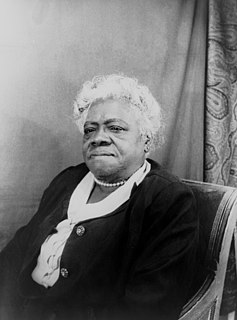A Quote by Richard Walters
What is forgiving? Forgiving is giving up all claim on one who had hurt you and letting go of the emotional consequences of the hurt. How can we do that? It's done at the price of beating back our pride. By nature we are selfish. Forgiving, by definition, is unselfish. Being hurt by another person wounds our pride. Pride stands in the way of forgiving. We cannot forgive without God's help. It might be possible for us to forgive something inconsequential without God's help; but in significant matters, we are unlikely to accomplish anything without God's involvement in the process.
Quote Topics
Accomplish
Another
Anything
Back
Beating
Being
Being Hurt
Cannot
Claim
Consequences
Definition
Done
Emotional
Forgive
Forgiving
Giving
Giving Up
Go
God
Had
Help
How
Hurt
Inconsequential
Involvement
Letting
Letting Go
Matters
Might
Nature
Our
Person
Possible
Price
Pride
Process
Selfish
Significant
Something
Stands
Unlikely
Unselfish
Up
Us
Way
We Cannot
Without
Without God
Wounds
Related Quotes
Forgiving is tough. Excusing is easy. What a mistake it is to confuse forgiving with being mushy, soft, gutless, and oh, so understanding. Before we forgive, we stiffen our spine and we hold a person accountable. And only then, in tough-minded judgment, can we do the outrageously impossible thing: we can forgive.
To forgive the incessant provocations of daily life - to keep on forgiving the bossy mother-in-law, the bullying husband, the nagging wife, the selfish daughter, the deceitful son - how can we do it? Only, I think, by remembering where we stand, by meaning our words when we say in our prayers each night, “Forgive our trespasses as we forgive those who trespass against us.” We are offered forgiveness on no other terms. To refuse it is to refuse God’s mercy for ourselves. There is no hint of exceptions and God means what he says.
It is of course evident that everything in one's religious life depends upon the sort of God one worships. The character of the worshiper must necessarily be molded by the character of the object worshipped. If it is a cruel and revengeful God, or a selfish and unjust God, the worshiper will be cruel, and revengeful, and selfish, and unjust, also. If it is a loving, tender, forgiving, unselfish God, the worshiper will be loving, and tender, and forgiving, and unselfish, as well.
Forgiving does not usually happen at once. It is a process, sometimes a long one, especially when it comes to wounds gouged deep. And we must expect some lapses...some people seem to manage to finish off forgiving in one swoop of the heart. But when they do, you can bet they are forgiving flesh wounds. Deeper cuts take more time and can use a second coat.
Forgiving is love's toughest work, and love's biggest risk. If you twist it into something it was never meant to be, it can make you a doormat or an insufferable manipulator. Forgiving seems almost unnatural. Our sense of fairness tells us people should pay for the wrong they do. But forgiving is love's power to break nature's rule.
Besides loving each other, we must bear with each other and pardon ? 'forgive them that trespass against us' ? in order that our heavenly Father may 'forgive us our trespasses' (Mt. 6:14). Thus, with all your soul honor and love in every man the image of God, not regarding his sins, for God alone is Holy and without sin; and see how He loves us, how much He has created and still creates for us, punishing us mercifully and forgiving us bounteously and graciously. Honor the man also, in spite of his sins, for he can always amend.
There is no enemy can hurt us but by our own hands. Satan could not hurt us, if our own corruption betrayed us not. Afflictions cannot hurt us without our own impatience. Temptations cannot hurt us, without our own yieldance. Death could not hurt us, without the sting of our own sins. Sins could not hurt us, without our own impenitence.
































